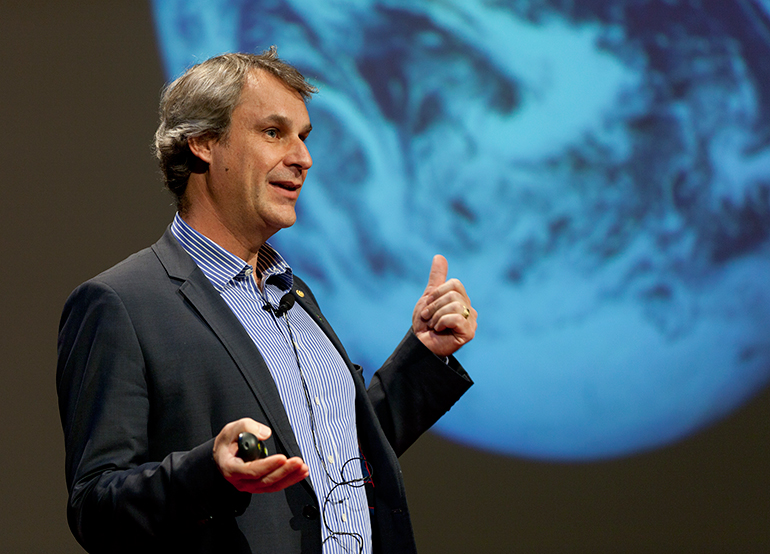
John Holmberg, professor at Chalmers. Photo: Chalmers
New Tools Added for Life Style Factors
People with lower carbon footprints are not less happy than people with higher ones. This implies that there are life-style choices that need to be addressed on a local level, related e.g. to peoples’ driving or eating habits. Cities may need to consider other tools than the usual, a Mistra Urban Futures research group concludes.
John Holmberg is a professor of physical resource theory and Vice President of Chalmers University of Technology in Gothenburg. Professor Holmberg and his colleagues have worked with the City of Gothenburg on how people’s well-being and living habits are connected to carbon emissions that contribute to climate changes, thus affecting the future of the city. The project is called WISE – Well-being in Sustainable Cities.
Q: What are the most startling findings this far?
A: An interesting result is that people with lower carbon footprints are not less happy than people with higher carbon footprints. This finding is the result of a close collaboration with the municipality and the development of a climate strategy for the city. We could probably have reached the same research result on our own, but we could not have developed the consumption–based approach for measuring carbon dioxide emissions, which we have now.
Q: What are the implications of your findings?
A: Traditional carbon dioxide emissions in Sweden have been decreasing over the years, but the emissions from consumption are actually stable. Our industry is getting more efficient, but since we eat a lot of meat and travel a lot, total carbon emissions are not decreasing. That is why this perspective is so interesting. What will that new information mean for a city? What new tools are needed for the city to develop?
The methods we need can’t be traditional. The solution may not be in the energy utility companies or the different waste handling systems. It is in how we choose to live our lives. And therefore we need to develop new tools and ways to address these kinds of issues.
Q: Can you suggest any immediate solutions for Gothenburg through this project?
A: One thing is that the municipality is responsible for the schools. They could introduce more beef-free school lunches in order to make the children used to eat food without red meat. That might trickle back to their families. In that way it can be a norm-shifting process.
Other things are developing in niches – carpooling activities, for example. How can the city promote and expand such activities? In city planning, there is a standard, for example, that if you build a certain number of apartments in a house, you need to have a certain number of parking lots associated. If the city finds a new approach – if we build this house with a carpool and make the flats cheaper – that’s a win-win. Perhaps you could offer lower rent because you don’t have to pay for extra space – you are part of a carpool and therefore more efficient and use less space in the city.
The City planners really like the consumption-based approach, but I think there’s a lack of this understanding in society. Too many academic results are not implemented in practice. And so much experience in practice is not understood by the scientists. Scientists do not know really what will be the big questions in practice and what will make a big change in society. One example is the climate strategy of Gothenburg, that my research team has been involved in developing. The collaboration with the municipality is key in this project and we recently published a report from that work.